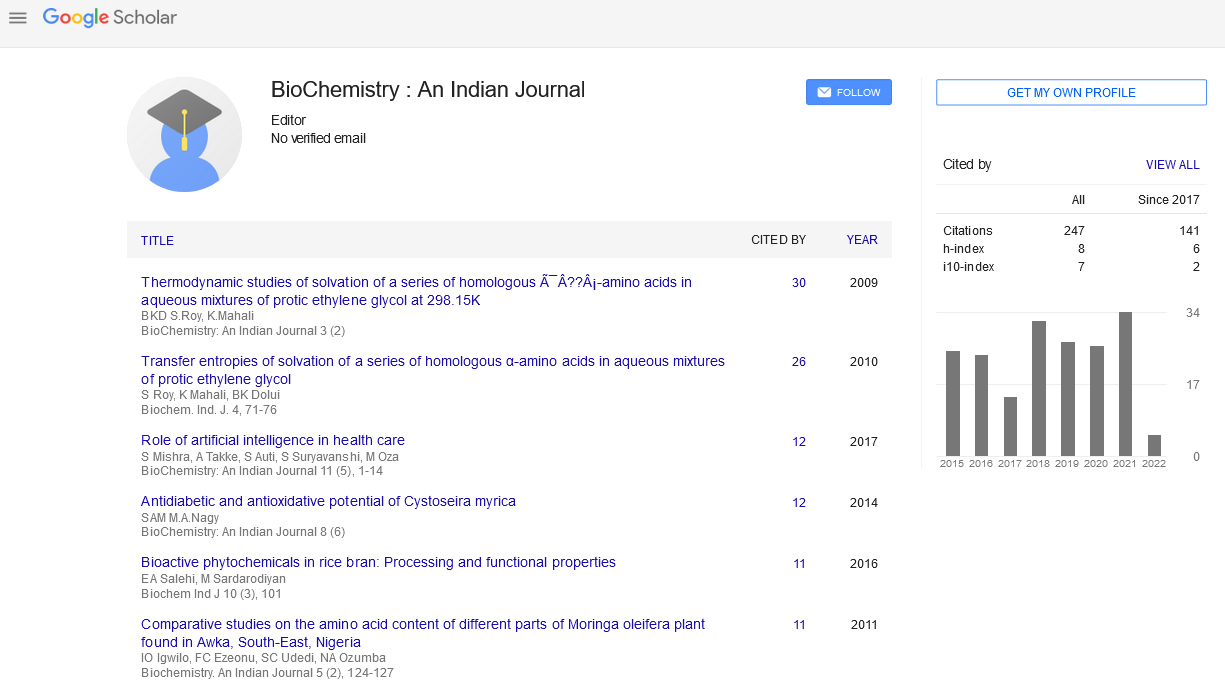Abstract
Effect of Dried Sweet Orange Pulp (Citrus sinesis) on the Lipid Profile of Wistar Albino Rats
Author(s): Okafor Chike*, Anuna Somtochukwu J, Ngamgbo Philip U, Umeh Obinna K, Enemor Victor H and Nwenyi Mmadu VMost cardiovascular diseases and obesity arise from the effects of over-accumulation of serum lipids. This study investigated the effect of dried sweet orange pulp (Citrus sinesis) on the lipid profile of wistar albino rats. A total of 20 rats were used for the study which lasted for a period of 28 days. The rats were grouped into four according to the feed given to them which consisted of normal rat feed (control) High Fat Diet (HFD) only, HFD+25 g dried orange pulp, and HFD+50 g dried orange pulp groups. At the end of the study, blood samples were collected by cardiac puncture and analysed for lipid profile using standard kiths. The results of the study showed that there was a significant reduction (p<0.05) in weight in the 25 g orange pulp+HFD and 50 g orange pulp+HFD groups while there was an increase in weight in the control and HFD groups. The group fed with a formulation of HFD+50 g of dried orange fibre had the lowest triglyceride, and highest High Density Lipoprotein levels, while the Low Density lipoprotein Cholesterol levels of the groups that were given orange pulp were greater than those of the control and HFD only groups. The results showed that dried sweet orange pulp (Citrus sinesis) has the potential of reducing cardiovascular diseases and obesity, although the orange pulp may need drugs that lower cholesterol to be totally effective.

